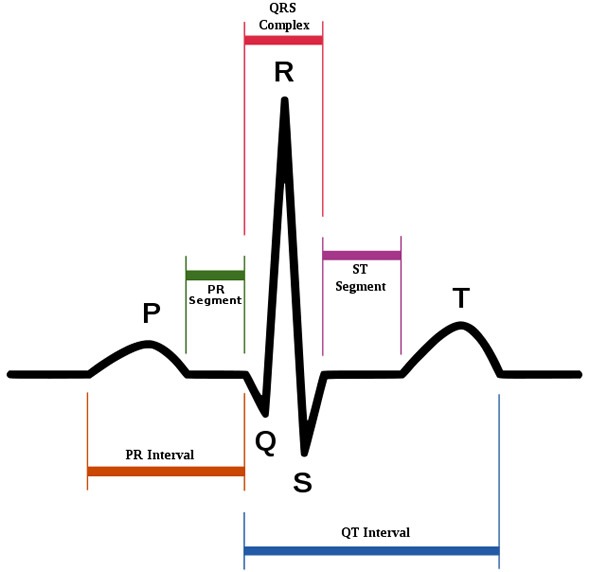Who diagnoses Long QT Syndrome (LQTS)?
Long QT syndrome (LQTS) is diagnosed and treated by specialists in cardiology or Cardiologists.
How is LQTS diagnosed?
Diagnosis of LQTS may be prompted by symptoms or may be made as a chance finding on Electrocardiography (EKG or ECG).
Diagnosis of LQTS includes looking at a patient’s medical history, physical examination and so forth. (1-6)

Medical history
The patient usually gives a history of fluttering or palpitations, long gasping in sleep and episodes of unexplained black outs or syncope. Patient will be asked about the medications that they take to rule out drug associated LQTS.
They will be asked about disorders of the thyroid, eating disorders and severe diarrhea and vomiting that may have led to the symptoms of LQTS.
Family history of sudden cardiac arrest or sudden cardiac death is also significant. This raises the possibility of the patient having inherited the condition.
Physical examination
Physical examination is usually made to rule out physical conditions that lower potassium in blood and give rise to LQTS symptoms. These include disorders of the thyroid, eating disorders and severe diarrhea and vomiting.
Electrocardiogram (EKG or ECG)
This is a simple test that uses tabs or probes that are stuck over the chest to detect and record the heart's electrical activity.
There are waves that show the electrical activity generated at the top of the heart and that travel to the bottom of the heart causing the heart muscles to contract and pump blood. These waves are P, Q, R, S and T.
The distance between Q wave and T wave is called the QT interval. This is measured on the graph on which a special stylus chalks out the pattern of the waves.
The distance between the waves is usually a unit of time and a fraction of a second. Often, doctors first discover a long QT interval when an EKG is performed for a suspected heart problem.
Not all patients with LQTS have a long QT interval. In addition the QT interval may change from time to time being longer at times compared to other times. Thus the EKG may be repeated several times or may be continuously recorded with a device worn for 24 hours or more called the Holter monitor.
The Holter monitor records the heart's electrical activity for a full 24- or 48-hour period. This can show problems that occur for only a few minutes in the whole day.
For the test small patches called electrodes are pasted over the chest at strategic locations and there are wires that connect these electrodes to a small, portable recorder.
This recorder can be clipped to the belt or kept in the pocket or hung around the neck. It is a safe test with no risk of radiation exposure. Daily activities may all be performed while the monitor is at work.
Some patients develop symptoms of LQTS and a long QT interval only when they are stressed or when they exercise. These patients may require a stress test using a treadmill or a stationary bicycle. This test is done under complete medical supervision.
The patient is attached the EKG machine and made to exercise. The change in the pattern of EKG is noted. In patients who cannot exercise a medicine that increases the heart rate may be given and changes in the EKG pattern are noted (epinephrine challenge test).
The diagnosis is confirmed if one of the following is present:
-
QT interval (Corrected QT interval QTc) of 0.46 second or longer in males and 0.47 second or longer in females
-
Exclusion of other conditions that may lead to a long QT
-
History of previous unexplained fainting, seizures, cardiac arrest or a family history of any of these or sudden cardiac death or sudden infant death syndrome
Genetic tests
Genetic tests can be used to detect inherited forms of LQTS. Genetic blood tests usually are suggested for family members of people who have LQTS as well. These tests are not always accurate and may miss the diagnosis.
In addition, some people may test positive for the genetic defect that leads to LQTS but may have no symptoms of the condition. These people may have silent LQTS. Less than 10 percent of these people will faint or suddenly die from an arrythmia.
Testing relatives of patients with LQTS
EKG and genetic tests are recommended for first-degree relatives of the person with LQTS. This includes mother, father, brother, sister, son or daughter.
It is very important that the parents and grandparents of the affected person are checked so that people at risk can be identified and sudden death is prevented.
Further Reading
Last Updated: May 27, 2023